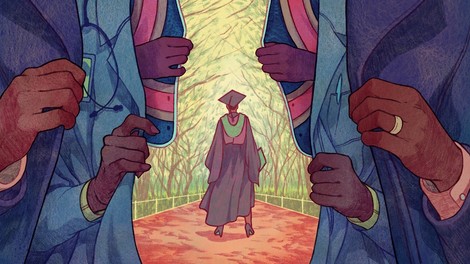Your podcast discovery platform
Curious minds select the most fascinating podcasts from around the world. Discover hand-piqd audio recommendations on your favorite topics.

piqer for: Global finds
Ciku Kimeria is a Kenyan author "Of goats and poisoned oranges" - (https://www.amazon.com/goats-poisoned-oranges-Ciku-Kimeria-ebook/dp/B00HBBWPI6), development consultant, adventurer and travel blogger (www.thekenyanexplorer.com). She writes both fiction and non-fiction focusing on African stories that need telling. She has worked on diverse pieces for various international and local publications including Quartz, Ozy, The East African etc. She has travelled to 45 countries – 16 of them in Africa. 153 countries to go and 63 territories!
"Of goats and poisoned oranges" has been extremely well received in Kenya and beyond. It tells the story of a Kenyan middle aged power couple and their complicated marriage. The novel explores issues of greed, revenge, betrayal and murder. It runs from the 1960s to 2013. It has been described as “Wicked, funny, poignant, wacky, human, a big ball of fun and danger”, “A unique and captivating book”, “Fun and intriguing”, “Impossible to put down once you start reading.”
She recently moved to Dakar, Senegal from Kenya to work on her second novel. She also works at as the Africa Communication Manager at a leading global strategy consulting firm.
She holds a B.S. in Management Science from MIT with minors in Urban Planning and International development studies.
Nigerians Are The Most Successful Ethnic Group In The US
Growing up in Kenya in the 1980s and 90s with limited opportunities to meet other Africans meant that all I knew about most other Africans was fairly generic and full of stereotypes. Nigerians, I heard, we’re extremely well educated – another stereotype, albeit a positive one. When I moved to the US in 2005 for my undergraduate studies, I got to meet Africans from many other countries. While all the Africans I met in university came from homes where education was highly valued, Nigerians seemed to be held to even higher standards by their families and society. My Nigerian friends would say that their families would only be pleased when they had brought home at least one masters degree.
Today, 29 percent of Nigerian-Americans over the age of 25 hold a graduate degree, compared to 11 percent of the overall U.S. population, according to the Migration Policy Institute. Among Nigerian-American professionals, 45 percent work in education services, the 2016 American Community Survey found, and many are professors at top universities. Nigerians are entering the medical field in the U.S. at an increased rate, leaving their home country to work in American hospitals, where they can earn more and work in better facilities. A growing number of Nigerian-Americans are becoming entrepreneurs and CEOs, building tech companies in the U.S. to help people back home.
Such a story is increasingly important to hear especially in today's world where black and brown migrants are treated with suspicion, many times assumed to be involved in illegal activities, thought of as only taking from the countries they move to without positively contributing.
Such stereotypes shape migration policies worldwide and it's great to see information that shows the positive impact migrants have in the societies they move into and also back home.
Nigerian-Americans have hustled and are leaving a positive mark in the US. Hopefully such stories will remind us of the importance of migrants.
